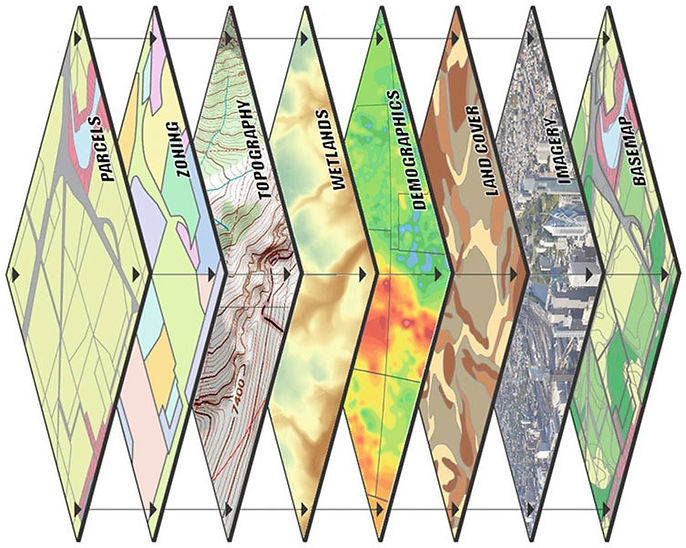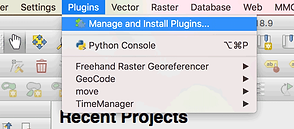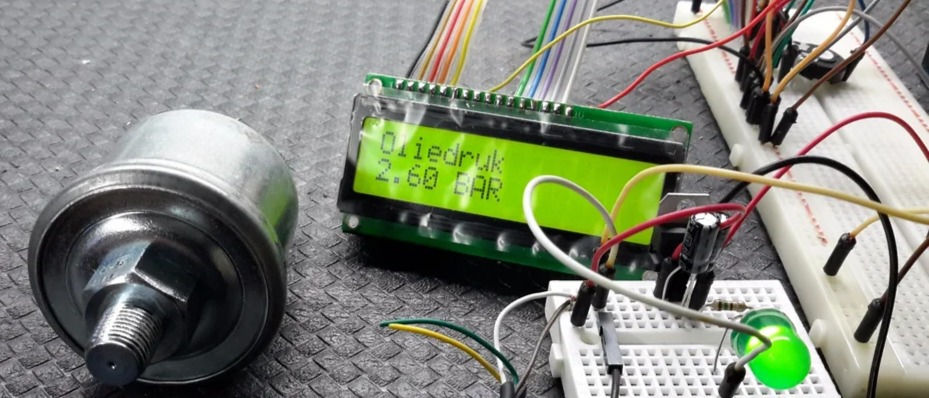Adaptive geodata solutions

Solve Spatial

3D Photoscan from 360 Cyclorama Images

-
Pointcloud generation with Pix4DMapper from a 360 camera (4x fish eye lenses) with GPS location functions
-
Converting our cyclorama's to a 3D model. Researching its quality, scalability, and ultimately its possibility to create new products from existing data.
-

AI Waterbody Mapping
from satellite Imagery
-
Identifying & automatically mapping the larger water objects for a water board authority to ultimately create a clean DEM from photogrammetry
-
Using high resolution satellite imagery (0.5m).
-
Unsupervised classification on RGBI raster
-
Mosaicking the several smaller footprint results together for the entire area
-
mapping the clouds and their shadow to mask/filter the unreliable result.
-

3D Stereo cartography (Large Scale)

-
3D Stereo cartography
-
Manual 3D City modelling of thousands of buildings in Level of detail 2.2 and 3.0 (LOD - TU DELFT)
-
Area calculations of solar panels in 3D for the WOZ tax calculations
-

Digitizing scanned analog maps

-
Digitizing analogue palm oil maps from a remote area
-
Georeferencing With GDAL based on processed satellite imagery.
-
Mapping features from the scanned map in vector format
-

Mutation detection
Stereo cartography
& processing of buildings and terrain
-
Mutation detection, Stereo cartography & processing of buildings and terrain
-
Manual Object Classification based following law-bound standards. Referenced from multiple visual data sources.
-
Stereo cartography in ArcMap with Stereo Analyst
-
Object mapping on TrueOrtho and TruePixel, photogrammetric products to eliminate leaning
-
Pilot Stereo cartography in CAD with EyeBase
-
Providing feedback for further development of Eyebase
-
-
Processing data with GisKIT Basiskaart in AutoCAD and ZWCAD
-

Integral WOZ BAG BGT Procedure preparing for SOR
-
WOZ, BAG, BGT Procedure, preparing data, quality check, delivery. the entire process back to back. An integral process to provide multiple object registrations with the necessary data and information.
-
Modeled the existing process in process diagrams to create a backbone documentation of the workflow
-
Improved the massive ETL FME-workspaces. Removed several bugs. Making them user friendly.
-
Prepared uniline stuftax data (unreadable) to a readable format with Editpadlite
-
Prepared BAG-WOZ linkage data
-
Build environments for operators to edit common errors
-
Linking non-geometry to geometric objects to expand on current insights
-

Building efficient GIS Project Environments

-
Build several efficient work environments for operators:
-
Build an EyeBase stereo project from aerial pictures
-
Setup the ArcMap stereo environment for operators
-
Converted stereo mappings to Basiskaart (for data processing)
-
Setup and prepping mutation detections
-
Created production environments with symbology, file management, planning, structure and overview
-
Several More
-

Big Impact x low Budget projects
-
Supported the organization with custom solutions
-
By filling in the needs for data on the fly in GIS
-
Automation and smart project preparation by:
-
Labelling, coloring & symbolizing features in ways that make it easy to work
-
Converting Data structures to a better fit for the workflow and software.
-
Bringing data together, eliminating the need for some processes.
-
-
Topological analyses, statistics and quality checks to enable decision making or improve production and development processes
-
Creating project progress maps in ArcGIS Online for both Management and Client
-
Several More
-

Spatial Database management
Carried the Responsibility for the management and maintenance of the GISKit IMGEO Datamanager:
-
For vertical traffic
-
Updated the Datamanager with new messages
-
Delivered mutation messages to the SVB-BGT portal (portal for the nationwide database)
-
-
For horizontal traffic
-
Mutating a BGT-Extract in BasisKaart
-
Exchanging mutations between Basiskaart and the Datamanager
-
-
Solving common issues
-
'WAS-WAS' differences
-
'WAS-WORDT' differences
-
All Topological errors
-
Consulting the PostGIS database in QGIS when critical errors persist and need to be solved
-
-
Setting up new services from scratch for each project
-
Installing and configuring the entire GisKIT Datamanager software
-
Writing documentation
-
Passing on the entire workflow to multiple other colleges

General ICT
-
Management and maintenance of Stereo cartography- and Processing machines
-
Responsible for both Hardware and Software malfunctioning
-
Building new workstations, installing all software and configuring it for first use
-
-
Management of the network folder and the connections
-
Functional design for a 10Gbps network
-
Created a 50TB High bandwidth network storage RAID configuration for a client

Project Management
Project Management of BAG and BGT-projects:
-
Processing revisions in cooperation with the BOR-department of municipalities
-
Projects in cooperation with land surveyors
-
Unburden the municipality in the maintenance of messages in the MMS-portal
-
Providing solutions to errors found in SVB-analyses, like
-
Findability of public spaces (Openbare ruimten). phase 1.
-
Process of filling up holes in the object registration (BGT). Phase 1, 2 and 3.
-
Transform transition-objects to the correct object type and physical properties
-
Uniformity issues on the border between different authorities.
-
-
Projects for the water authorities with special drawing rules
-
Collecting the definitive geometry for BAG-buildings
-
Baseline assessments (Nulmeting) of object registrations
-
Finalizing projects - delivering products to clients


Quality checks

Quality check and feedback on processes like:
-
Internal BGT-mutations (pre-delivery)
-
Internal BAG-mutations (pre-delivery)
-
Received land survey drawings
FME: Correct Mismatching Coordinate systems
-
Creating a solution to work with foreign datasets provided in a coordinate reference system (CRS), different from the hardcoded CRS
the client's software (GisKIT) is working in. This opens up an entire market that competitors cannot access with this software.
- Researching the limitations of GisKIT.
- Provided my employer a theoretical solution.
- Developing the entire software infrastructure in FME necessary for these new processes.
- Presented the proof of concept. (they said it could not be done, but i proved otherwise)
- Provided the integration plan.
FME: Automated quality check
-
Automated our quality check that validates if the mapped features are processed and delivered as intended to the client.
- Spatially check if mapped lines exist in the product: The analysis returns the lines that do not exist within
a variable distance from the mapped lines in the product while precisely preserving their original topology.
- Including a validation for the intended attributes of the resulting BGT-objects.
- It can run locale files only when post-delivery, or even run against the live PostGIS database on the server before delivery.
- Analysis result can be exported and is compatible with the GisKIT Format for easy adjustment processing.
FME: Pointcloud Thinner
-
Pointcloud thinner based on 'Equal Spacing' between input points, without interpolation or resampling.
FME: Terrain model from Digital elevation model
-
DEM Raster: Extracting a terrain model from a surface model by segmentation.
- Filtering objects like cars, buildings, light poles, and many other objects from the dataset.
QGGIS Plugin: convert BGT-polygons to single lines

-
Agile developed of a QGIS Plugin that converts polygon objects (with common boundaries) in a BGT-extract, to single line objects.
- Including the user interface, ‘Add result to map’ capability and a conversion progress bar.
FME: Twin City genrator from mapped 2.5D Objects
-
Citymodel Constructor: Builds topologically correct solid objects from a 2,5D (3d-polygon) production database
FME: 3D Product Database updater
-
3D Product updater: Merges the production databases into a final product, allowing for updates to take place:
Overlapping features are updated with the newer, object routing is based on several conditions.
FME: Filter unnecessary objects for efficient processing
-
Build a process to prepare RVO-data (agraculture geometry) to be processed into the BGT
- Saving time during processing by Cutting down 50% of the data that did not need to be processed with an FME analysis.
FME: BOR and BGT Synchronization
-
BOR-BGT data Comparison – comparing the two and provide one with data from the other object registration when one is more recent,
taking both geometric and adminstrative differences in account.
- Created 5 different look-up tables because of different terminology and other database joining
- Processing and preparing the data in a way to make it efficient for a timely goal.
FME: quality check before product delivery
-
BGT-processing QC workbench, comparing the country wide database to our internal twin/mirror and our project files to find accidental unprocessed data or other critical issues
- designing a logical workflow in process diagrams with lucidchart
- FME-workbench that connects with our internal mirror database, the countrywide database and our projectfiles to do a comparison analysis and provide information to project leaders and database managers

Automation & Robotics
-
Autonomous self driving robot
-
Light tracker (concept for solar tracking)
-
wireless controllable, driving robot - steered by using the remote control IR-signals
-
Robot arm using several servo motors and a stepper motor
-
Air quality station
-
Line following robot
-
RF data communication devices
-
Many more unlisted

Themed Maps
-
Thematic map (PDF): 'California’s 2012 Ballot on labelling GMOs in food' (click to open)
-
Thematic map ArcGIS Online: 'New Valmeyers Statistics, after moving the city to high ground' (click to open)
-
Thematic map (PDF): 'Harmful gas (Ozone) per county against elevation and income' (click to open)

Programming
-
Many (small) video games in languages C++, C#, Javascript and ActionScript
-
Serial networking in robotics between the desktop computer and the robot (driver+GUI)
-
Building RasterSky with HTML5, CSS, PHP7 and (my)SQL
-
Many Programs to operate the robotics in languages C, C++ and some Assembly (but usually not)